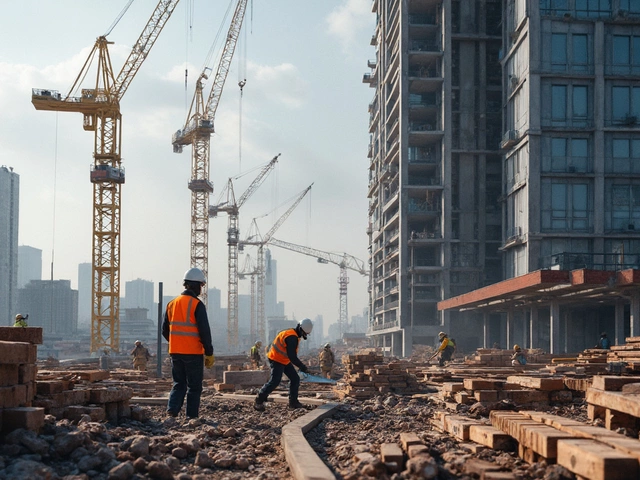Contractor Selection: How to Pick the Right Builder for Your Project
Finding the right contractor can feel like a gamble, but it doesn’t have to be. Follow a few simple steps and you’ll cut the guesswork, avoid costly mistakes, and keep your project on track.
Know What Kind of Contractor You Need
First, figure out exactly what work you need. A new‑build home usually needs a full‑service construction company, while a kitchen remodel might only require a specialist fitter. The post “Builder vs Construction Company: Key Differences and Roles in Home Projects” explains the roles – a builder manages the whole build, a construction company may focus on specific trades.
Make a short list of the services you expect: foundations, framing, roofing, interior finishes. When you know the scope, you can ask the right questions and compare quotes fairly.
Check Credentials, Experience, and Reputation
Ask for a contractor’s licence, insurance, and any relevant industry memberships. A reputable builder should provide references from recent jobs. Look for reviews that mention timeliness, quality of work, and communication.
Don’t ignore the “Best New Build Companies in 2025: Honest Guide to Smart Choices”. It highlights what to look for in a top‑tier company – solid financial health, a portfolio of completed homes, and clear warranty terms.
Ask the contractor how they handle unexpected issues. A good sign is a transparent plan for change orders and a written process for cost adjustments.
Get Detailed Quotes and Compare Them Smartly
Ask each contractor for a written estimate that breaks down labor, materials, and any subcontractor fees. The post “Roofers Charge Per Square: What’s Typical and Why It’s Not Always Simple” shows why a line‑item breakdown matters – you can see where prices differ and spot hidden costs.
When comparing quotes, focus on value, not just the lowest price. The cheapest option may cut corners on materials like the limestone and aggregates we supply at Lime Hillock, leading to future repairs.
Visit Ongoing Sites and Talk to Past Clients
If possible, walk a current job site. Look for cleanliness, safety signs, and how workers interact with each other. A tidy site often reflects a contractor who respects your property.
Call at least two past clients and ask about their experience. Did the contractor finish on time? Were there surprise costs? How easy was it to get answers?
Finalize with a Clear Contract
Once you’ve chosen a contractor, don’t skip the contract. It should list the scope, schedule, payment milestones, warranty details, and how changes will be handled. Both parties need to sign before any work begins.
Having a solid contract protects you and the contractor, keeping the project moving forward without disputes.
Choosing the right contractor is a mix of research, asking the right questions, and trusting your gut when something feels off. Follow this checklist, use the posts above for deeper insight, and you’ll set your build up for success.
Best Contractor in USA: Who Tops the List for Construction Companies?

If you’re hunting for the best contractor in the USA, you know how dizzying all those big names and promises can be. This article cuts through the noise, breaking down what really matters when choosing a top construction company. From safety records to customer service, find out which contractor stands out. You'll pick up practical tips for spotting true quality and walk away ready to start your next project with confidence. Real experiences and details, not just corporate slogans.
read more



